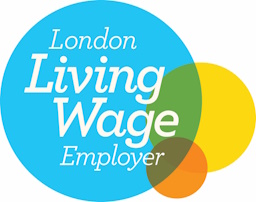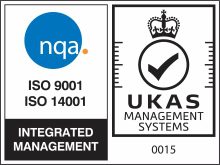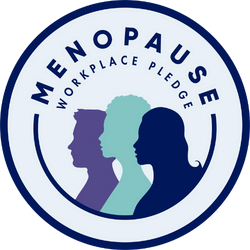News
Sara’s Blog: Quarter one survey results and Business Skills for Growth Survey
The results from the British Chambers of Commerce (BCC) quarterly economic survey (QES) for the first quarter of 2022 have highlighted the full extent of financial stress that businesses are under. With soaring inflationary pressures reaching record highs, firms are facing cost increases from all angles, ranging from energy bills and raw material prices as well as the rise in National Insurance.
The QES received over 5,600 responses and as the UK’s largest independent economic survey, it highlights the common issues faced by the business community on a national level and supports Chambers like Staffordshire to be the voice of the business community, as well as helping to shape and influence policy thinking with the information provided.
Whilst overall the survey indicated a solid first quarter for the UK economy, as the release of pent-up demand following the end of Plan B restrictions and reduced consumer concerns over Omicron helped support activity in the quarter. However, figures also highlight the significant headwinds facing the UK economy.
Historically, high price pressures suggests that the current inflationary surge will escalate significantly in the coming months. The reversal of the hospitality VAT cut, the higher energy price cap and soaring energy and commodity prices amid Russia’s invasion of Ukraine, should push inflation well above eight percent in the near term.
In Q1, more than 77 percent of firms surveyed cited inflation as a concern for their business, whilst 62 percent (a new historical high) also stated that they expect to raise prices, which is an increase from 58 percent in Q4 2021. This figure increased to 75 percent for production and manufacturing firms as well as firms in the retail sector. The results from the survey have demonstrated the rising inflationary pressures on firms reaching the highest they have been in 33 years, and this has caused the cost of business to increase significantly meaning that more firms are likely to see their cash flow weaken.
92 percent of manufacturing companies have cited that the increasing cost of raw materials has led to the subsequent increase in their prices. However, other firms have also noted that the energy and fuel costs, as well as finance costs, have played a significant role in price increases.
Only 42 percent of firms reported an overall increase in domestic sales which is a decrease from the previous 45 percent which was reported in Q4 2021. Then 16 percent of firms reported a decrease in their domestic sales, this figure has increased to 18 percent now. Despite firms in the services sector reporting a decrease of 5 percent in domestic sales compared to Q4 2021, firms in the manufacturing sector have reported an increase of 2 percent in domestic sales.
It was disappointing to see the Chancellor miss the opportunity to reduce the cost of doing business in his Spring Statement. We have continued to urge Government to provide urgent financial support to SMEs, by expanding the energy bills rebate scheme as well as introducing an SME energy price cap to protect smaller firms from the price increases.
It is also important to note the relevance of Russia’s invasion of Ukraine which has raised the risk of a renewed economic downturn, further aggravating the financial squeeze on businesses and households. It is now more important than ever that businesses are provided with the right support to ensure businesses have greater resilience to get through the uncertain times ahead.
Business Skills for Growth Survey
The figures above whilst sobering also highlight the importance that the skills agenda must play in getting the economy back on track as more than ever, businesses recognise that their workforce is their biggest asset.
Changes to the working world including higher customer expectations, economic uncertainty and round-the-clock markets mean that skill gaps in businesses are widening.
And, with Brexit and the push for every business to be ‘Net Zero’ by 2050, firms face a real challenge when it comes to their skill base and growth.
The Stoke-on-Trent and Staffordshire Local Enterprise Partnership (SSLEP), through its Skills Advisory Panel, is asking all organisations and businesses to take part in the Business Skills for Growth Survey to understand future business skills needs.
By completing the survey you’ll be helping to shape the evolution of skills provision across Stoke-on-Trent and Staffordshire that will come together through a network of support organisations and learning providers including Staffordshire Chambers. The survey takes around 25 minutes to complete, and your input is greatly valued in helping to shape our future economy.
You can access the survey, here.
If you want to talk to us about any business issues, including funding, you can call our switchboard on 01782 202222 or call the Stoke and Staffs Growth Hub Helpline on 0300 111 8002 or email: info@staffordshirechambers.co.uk
- Published in News
What is a business credit score and why is it important?
If you’ve ever registered for a credit card, purchased a car on finance or applied for a mortgage, you’ll be aware of your own personal credit rating. All adults have a credit score – a rating that lenders use to see how likely you are to default on a loan or credit card, generated via credit reports with credit reference agencies (CRAs) like Experian.
Staying within your overdraft limit, avoiding bad debt and paying bills on time all help build a good personal credit rating, enabling you to access preferential rates on finance products.
A business credit score works on a very similar basis, yet many small business owners have never even considered checking their business credit report or, in some cases, know little about them.
If you’re a sole trader, lenders will use your personal credit score to determine your creditworthiness, but if you set up a limited company, you can build your business credit rating independently.
Just as boosting your own credit rating can help you secure a good deal on a mortgage for your dream home, looking after your business credit score can help you achieve your business goals. Indeed, access to finance could mean the difference between taking your company to the next level or staying stuck in a professional rut.
Having a good business credit score can also save you money in the long term, giving you access to business loans with lower interest rates. The opposite is true if your score is low, since you may only be offered higher rates that could impact your finances and ability to grow.
You can regularly check your business credit score with Experian ‘My Business Profile’ and sign up for alerts that notify you when your credit record changes. Then you can act fast to rectify any problems.
Find out more about Experian ‘My Business Profile’ and the free trial/discount offer.
- Published in News
Policy Spotlight with Rhouda: Quarterly Economic Survey Quarter 1 results
The British Chambers of Commerce’s Quarterly Economic Survey for Q1 received over 5,600 responses. As the UK’s largest independent economic survey, the QES highlights the common issues faced by the business community on a national level and supports Chambers across the network to be the voice of the business community, as well as helping to shape and influence policy thinking with the information provided.
In Quarter 1, more than 77% of firms surveyed cited inflation as a concern for their business, whilst 62% of firms also stated that they expect to raise prices, which is an increase from 58% in Q4 2021. This figure increased to 75% for production and manufacturing firms as well as firms in the retail sector. The results from the survey have demonstrated the rising inflationary pressures on firms reaching the highest they have been in 33 years, and this has caused the cost of business to increase significantly meaning that more firms are likely to see their cash flow weaken.
92% of manufacturing companies have cited that the increasing cost of raw materials has led to the subsequent increase in their prices. However, other firms have also noted that the energy and fuel costs, as well as finance costs, have played a significant role in the lead up to the firm increasing their prices.
In Q1, only 42% of firms reported an overall increase in domestic sales which is a decrease from the previous 45% which was reported in Q4 2021. In Q4 of 2021, 16% of firms reported a decrease in their domestic sales, this figure has increased to 18% in Q1 of 2022. Despite firms in the services sector reporting a decrease of 5% in domestic sales compared to Q4 2021, firms in the manufacturing sector have reported an increase of 2% in domestic sales compared to Q4 2021.
Sara Williams, CEO of Staffordshire Chambers of Commerce, said: “The results from the survey of Quarter 1 of 2022 have highlighted the huge amounts of financial stress that businesses are under. With soaring inflationary pressures reaching record highs, firms are facing cost increases from all angles, ranging from energy bills and raw material prices as well as the rise in National Insurance.
“It was disappointing to see the Chancellor miss the opportunity to reduce the cost of doing business in his Spring Statement. We have continued to urge Government to provide urgent financial support to SMEs in particular, by expanding the energy bills rebate scheme as well as introducing an SME energy price cap to protect smaller firms from the price increases.”
It is also important to note the relevance of Russia’s invasion of Ukraine which has raised the risk of a renewed economic downturn, further aggravating the financial squeeze on businesses and households. It is now more important than ever that businesses are provided the right support in order to ensure businesses have greater resilience to get through the uncertain times ahead.
If you want to talk to us about any business issues, you can call our switchboard on 01782 202222.
- Published in News
Staffordshire Chambers partner with LilaConnect to provide a ‘Full on Fibre Future’
Staffordshire Chambers are delighted to announce that we’ve partnered with LilaConnect to provide a very special offer to our members so that their employees can enjoy unrivalled home broadband speed and value.
Chamber members’ employees are set to receive free installation, their first three months completely free, as well as a further month of free service for every new customer they refer*.
LilaConnect’s full fibre network boasts the fastest internet speeds of up to 1 Gigabit, symmetrical upload and download speeds and no telephone line rental. It will future proof your home to handle your growing demands for bandwidth!
This is an invitation-only offer, available to all employees within a Chamber member organisation. To ensure your staff members and colleagues don’t miss out, they should register their interest by clicking here to complete and submit the linked form (please do not register via the website). A member of the LilaConnect team will then contact your colleagues to discuss their specific requirements.
*Cannot be used in conjunction with another offer, T&Cs apply.
- Published in News
Two Chamber employees join pioneering ‘Young SDG Innovators’ Programme
Two of Staffordshire Chambers’ employees have joined the Young SDG Innovators Programme that helps young talent to collaborate and accelerate business innovation towards the Sustainable Development Goals.
Our young innovators, Project Administrator, Rosie Morris and External Affairs & Comms Advisor, Rhouda Elalfy are working alongside industry leaders to help enhance knowledge and understanding in the organisation, which in turn, we can share with the Staffordshire business community. The first camp took place virtually on the 9th and 10th of February and allowed all innovators from companies across the nation to connect and collaborate on ideas and projects which relate to their company and industry, as well as build new relationships through networking opportunities.
The aim of the project is to connect young minds in leading industries and companies to incorporate ways of sustainable thinking into their workplace.
The Sustainable Development Goals are a collection of 17 interlinked global goals designed to be a “blueprint to achieve a better and more sustainable future for all”
By taking part in the Innovators Programme, Rosie and Rhouda will focus on SDG 8, Decent Work and Economic Growth, and SDG 11, Sustainable Cities and Communities, which will help transform the work of the Chamber in our business community. The project aims to transform the region to become a greener, healthier and more sustainable area to live and work in.
Sara Williams, CEO of Staffordshire Chambers of Commerce, said: “Since COP26 took place last year, there has been increasing pressure from policies on transparency, accountability and environmental responsibility. Any company that wants to ensure that its performance remains stable and continuous must step up and make sure that they will be relevant in the future.
“One trend that we have seen become more visible over the last couple of years is the interest and passion that the younger generation have towards sustainability being at the centre of the organisations that they shop from, work for and support. Having two of our own young employees at the Chambers take part in the programme to help us play our part in shaping a sustainable future in Staffordshire is truly inspiring.”
Rosie Morris, Project Administrator, said: “Being part of this global project is incredibly eye-opening. Our first camp introduced us to so many young people working in different organisations across the country, all of which have the same goal of making an impact in our place of work to secure a better future for the next generations. We are so excited to develop our project further and we look forward to the next few camps continuing to share ideas and learn from each other.”
To find out more about the Young SDG Innovators Programme visit https://bit.ly/34yeylK or if you would like to discuss sustainability within your business get in touch with Staffordshire Chambers on 01782 202222.
- Published in News
Policy Spotlight with Rhouda: The cost of living crisis and what the Spring Statement means for Business
Last week, Prime Minister Boris Johnson said that ‘the cost of living is the single biggest thing we are having to fix, and we will fix it,’ – and yet business leaders and organisations such as the Institute for Fiscal Studies have stated that the government has not gone far enough in their Spring Statement to protect those hit hardest by rising costs.
As energy, fuel and food prices continue to surge whilst inflation remains on an upward trajectory, businesses and communities across the country have voiced their concerns on the current financial pressures that they are having to face whilst being offered little support.
In his Spring Statement delivered last week, Chancellor Rishi Sunak announced a cut in fuel duty by 5p a litre until March 2023, a reduction in the basic rate of income tax from 20p to 19p as well as changing the point at which people start paying National Insurance, now increasing to £12,570 in July 2022.
Businesses have welcomed the announcement made by the Chancellor to raise the National Insurance contribution threshold as well as increasing the Employment Allowance. However, as many businesses continue to recover from two years of the Covid-19 pandemic, having to overcome further challenges such as increasing energy costs, skill and labour shortages and supply chain disruptions without more government support is likely to hinder their recovery and ultimately affect the economic development of the country.
Sara Williams, CEO of Staffordshire Chambers of Commerce, said: “Whilst we welcome the Chancellors cut in fuel duty, this will only offer a short-term reprieve for businesses and households. Businesses are facing an insurmountable amount of pressure from the surging costs coming from all directions; and small businesses in particular, are exposed to the rising costs as they lack protection, financial support which has been offered to households and the negotiating power of larger businesses.
“It is disappointing that the Chancellor has missed the opportunity in his Spring Statement to rebuild and renew the economy by tackling the escalating cost of doing business crisis. We now urge the government to take further action in order to help firms protect employee jobs and make investments.”
Chambers across the network will continue to call for government provision of further meaningful action to support businesses which will enable regions across the country to Level Up and Build Back Better. Staffordshire Chambers of Commerce will maintain its collaborations and close work with business leaders in our local area to understand the challenges being faced so that we can lobby for better business working conditions in order to support the region’s economic productivity.
Chamber members are encouraged to attend our business forums which enable businesses from similar sectors to meet and discuss issues relevant to their sector, you can find out more about attending our forums here: https://staffordshirechambers.co.uk/chambers-forums/.
If you want to talk to us about any business issues, you can call our switchboard on 01782 202222.
- Published in News
Sara’s Blog: Chancellor’s Spring Statement 2022 and launch of 2022 Staffordshire Chambers Business Awards
The chancellor has been under pressure to help households with the cost-of-living squeeze, with prices rising by 6.2 percent in the 12 months to February – the fastest for 30 years.
In response in his Spring Statement on Wednesday he announced that he would cut fuel duty, raise the threshold at which people start paying National Insurance, and pledged to cut the basic rate of income tax before the next general election.
Unfortunately the outlook is bleak with growth projections slashed, fuel, energy and food prices soaring. More families will be pushed into poverty, having to make choices between ‘eat or heat’ and many firms will be forced to continue raising prices, further fuelling the cost-of-living crisis.
The British Chambers of Commerce (BCC) has stated that the Spring Statement falls short of what businesses needed and wanted. While there were some positive announcements that firms will welcome, it did not fundamentally address the huge cost pressures they are facing.
Businesses will no doubt be pleased that the employment allowance has been increased. This long running ask of Chambers will provide a small amount of financial headroom for firms facing rising costs.
But there was a missed opportunity to rebuild and renew the economy and ensure business has the resilience to weather the uncertain and volatile times ahead.
The cut in fuel duty, though welcome, is a drop in the ocean compared to surging costs bearing down on firms and households. And with the escalating cost of oil, it could be negated within a week. Smaller businesses are particularly exposed as they have neither the protections or financial support provided to households, nor the negotiating power of larger businesses.
Chambers are urging the government to act on pressing issues including an SME energy price cap – to tackle the escalating cost of doing business crisis. Firms need the headroom to keep a lid on prices, protect jobs and make investment that is so vital to sustaining our economic prospects.
Whilst chambers broadly welcome the chancellor’s firm commitment to cut taxes on business investment we will be keeping up the pressure on the government to react accordingly to whatever twists and turns global events present us with as well as doing all they can to provide and encourage investment which will boost productivity, whilst continuing the levelling-up agenda and the transition to net zero. You can view the key points of the statement here: Spring Statement: Key points at a glance – BBC News
Now for some good news!
Today sees the launch of the 2022 Staffordshire Chambers Business Awards.
We are moving the awards back to their usual summer slot and the grand gala final will take place at Uttoxeter Racecourse in July.
As always, our awards will showcase and celebrate the best business talent in Staffordshire with a variety of award categories that cover everything from new start-up businesses to multinational corporations – as well as awards for individual employees.
It’s a great opportunity for you to spotlight your business and get recognition for your work during the last 12 months. Shortlisted businesses receive invaluable coverage in local press and across social media and will be invited to a gala evening celebration on 14th July. The entry process is simple and streamlined and you can enter as many categories as you like.
This year’s Business Awards is kindly supported by HSBC as headline sponsors plus a sponsor for each category. The theme for the awards is innovation and sustainability – sponsored by Keele University and our award partners are We Are Staffordshire.
There are 15 award categories and one of the winners will also be crowned as overall Business of the Year.
For entry details and a full list of award categories and sponsors click here: www.staffordshirechambers.co.uk/awards
And if you need any help with your application, we are hosting two ‘How to write an award-winning entry’ masterclasses on Monday, 4th April. You can book your free AM slot, here, or a PM slot, here.
If you want to talk to us about any business issues, including funding, you can call our switchboard on 01782 202222 or call the Stoke and Staffs Growth Hub Helpline on 0300 111 8002 or email: info@staffordshirechambers.co.uk
- Published in News
Policy Spotlight with Rhouda: Staffordshire Chamber Patrons visit the House of Commons
Last week we were delighted to invite twelve of our Patrons to the House of Commons for an event hosted by Jack Brereton, MP for Stoke-on-Trent South. Business leaders from across the region had the opportunity to ask questions or raise issues affecting their sector to the Minister of Small Business, Paul Scully and to the Minister of State for Transport, Andrew Stephenson. We were also joined by five local MPs, including Aaron Bell, Theo Clarke, Jo Gideon, Karen Bradley and Jack Brereton.
After being shown around the Houses of Parliament, the first session began where we were joined by Minister Paul Scully and Co-Executive Director of the British Chambers of Commerce, Hannah Essex who chaired the session. The Minister explained the work that the government is currently doing around supporting small businesses in regions across the nation, including Staffordshire. This was followed by a Q&A session where our patrons asked questions around the Chancellors Spring Statement, support for the hospitality and retail sector, energy prices and the move to renewable energy sources and levelling up. More discussions took place regarding the support being offered to small businesses in order to help them cope with the current cost of living crisis.
After speaking to our patrons for the first session of the day Minister Paul Scully said: “We want to make sure that we work with you [business leaders] to better shape our policies”.
As many businesses across the nation are facing recruitment difficulties due to the chronic imbalances in the UK labour market, with demand for workers outpacing supply, MP for Stoke-on-Trent Central, Jo Gideon highlighted the importance of apprenticeships in solving current skills and labour shortages.
To find out more about developing your employees’ skills and to find and apply for funding for paid training contacts, contact Staffordshire Chambers of Commerce’s Skills Hub by calling 0300 600 1066 or visit www.staffordshireskillshub.org.uk.
Jack Brereton MP explained the importance of developing the region’s transport system to allow better access to transport which will support the development and growth of the city. By allowing more people to access opportunities in the region, businesses are more likely to be able to find the right skills for their firms, helping to solve the issues concerning recruitment.
In the final session of the day, we were joined by Minister Andrew Stephenson who began by providing an update on the current work being carried out in the development of phase 2a of HS2. The Minister highlighted that there are currently 2,400 businesses across the nation who are now involved in the project, 84 of which are Staffordshire based. Minister Andrew Stepheson encouraged more businesses to bid for HS2 contract opportunities by visiting https://bit.ly/3wmY37F.
You can also find out more about HS2 and the opportunities for businesses by joining the Staffordshire Chambers HS2 Forum. The next forum takes place on 28th April, and Chamber members can register, here.
Business leaders in attendance stressed the need for connectivity across Staffordshire to enable cities like Stoke-on-Trent to widen their business links. Jack Brereton MP outlined the ongoing bids to reopen train stations within the city such as the work being done by local MPs and local authorities to reopen the Stoke-Leek line.
Sara Williams, CEO of Staffordshire Chambers of Commerce said: “Our event at the House of Commons was a great success, with two Ministers, five MPs and two peers of the realm joining us and speaking to our patrons. The sessions ran by the Ministers were so informative and highlighted the need to work together to help the development and growth of the region as well as the nation.
“Stoke-on-Trent has been successful in securing investment from the government recently especially as the government have prioritised it as a region for levelling up. It is now important that local MPs and local authorities are able to work together to ensure that there are better local opportunities for workers in order to help support and grow local businesses in the area.”
- Published in News
BBC Radio Stoke Journalist, Bongi Msimanga delivers impassioned message on International Day for the Elimination of Racial Discrimination
BBC Radio Stoke Community Journalist, Bongi Msimanga, has recorded an impassioned message for the Chamber on the International Day for the Elimination of Racial Discrimination.
The video forms part of our monthly SDG spotlight, with a focus on SDG 5, Gender Equality and SDG 10, Reduce Inequality throughout March.
In the video, which can be streamed now on the Chambers’ YouTube channel, Bongi said: “One thing I am really passionate about is talking about racism. I’ve got a podcast with my husband called ‘It’s not always black and white’ which is about us being an interracial couple.
“What our podcast does that you don’t see in normal society is it makes it very clear how important it is to talk about race – but also, if there is an uncomfortable subject to talk about, it’s important to have those conversations.”
Watch the video in full below.
- Published in News
Sara’s Blog: Chambers urging chancellor to rethink Spring Statement
The Chancellor, Rishi Sunak will deliver his Spring Statement on 23rd March. Whilst he will be guarded against committing to extra spending, I hope he sees the need to take some action to limit the damage of the increasing cost of doing business on firms and consumers.
Following the fallout from the Russian invasion of Ukraine, Chambers believe the Chancellor must act now to protect the UK from a renewed economic crisis, taking decisive action in his statement to mitigate the spiralling costs of simply doing business.
Businesses are reporting a crippling burden from cost pressures which include rising raw material costs, soaring energy bills and other overheads.
The British Chambers of Commerce’s (BCC) latest economic forecast projects that the war in Ukraine has increased the risk of a recession in the UK by exacerbating the already acute inflationary squeeze on consumers and businesses and derailing the supply of commodities to key sectors of the economy. Raising taxes at this time would weaken the UK’s growth prospects further, by undermining confidence and diminishing households’ and firms’ finances.
With a week to go, the BCC is calling on the government to use the Spring Statement to enact the their Five Point Plan to Tackle the Cost of Doing Business Crisis:
- Delay the impending National Insurance rise by one year.
- Temporary energy price cap for small businesses.
- Additional financial support, through the expansion of the energy bills rebate scheme for households to include small firms and energy intensive businesses; a new support fund, administered by Ofgem to support the smallest firms with their soaring energy bills; and a six-month extension to the Recovery Loan Scheme, leaving it in place until the end of 2022.
- A moratorium, for the life of this Parliament, on all policy measures that increase business costs, but excluding only evidence-based changes to the National Living Wage.
- A commitment from the government’s Supply Chain Advisory Group and Industry Taskforce to continue to work with industry to deliver urgent practical solutions to ease the supply chain disruption and labour shortages that continue to drive the upward pressure on prices.
The BCC is also calling on energy firms to work more closely with government, business, and other key stakeholders to provide more substantial support to help businesses and households to navigate this difficult period.
Implementing this five-point plan would help shield firms from the worst of the costs’ crisis – giving them headroom to keep a lid on prices, protect jobs and make investment that is so vital to sustaining our economic prospects.
If you want to talk to us about any business issues, including funding, you can call our switchboard on 01782 202222 or call the Stoke and Staffs Growth Hub Helpline on 0300 111 8002 or email: info@staffordshirechambers.co.uk
- Published in News, Uncategorized









